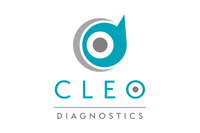Believe Precision Medicine Belongs to Pharma? Think Again.
Think personalized medicine and a few things come to mind: namely, genetically tailored drugs and genome-based therapies. Medical devices aren’t most people’s first thought—but that may be changing, and fast.
Think personalized medicine and a few things come to mind: namely, genetically tailored drugs and genome-based therapies. Medical devices aren’t most people’s first thought—but that may be changing, and fast.
This week, the FDA approved another landmark medical device: the Claria MRI Quad Cardiac Resynchronization Therapy Defibrillator SureScan from Medtronic (NYSE:MDT). It’s one of the few cardiac devices approved for scanning in MRI machines—but that’s not what has people talking.
This defibrillator ushers in a new age of personalized treatment and another way to understand precision medicine. That’s thanks to a powerful algorithm that, according to Medtronic’s press release, “automatically tailors the therapy to individual patients.”
Individualized therapy
Unlike standard defibrillators, Medtronic’s new device has built-in software that monitors the efficacy of its mechanical pulses and adjusts the delivery rate as required. In other words, it tweaks the pacing rate in real time to provide maximum, individualized benefit to each and every patient.
“Until now, CRT devices have shown only whether a pacing pulse was sent,” explains Dr. Suneet Mittal, who was involved in testing the Claria device. “But we haven’t been able to determine if that stimulation actually improves the heart’s pumping ability.
“With the Claria device, physicians are now able to verify the effectiveness of left ventricular pacing, which is especially beneficial for improving outcomes in patients with atrial fibrillation.”
Medtronic has previously harnessed algorithms to deliver personalized care. Just consider its MiniMed 670G glucose monitoring system, which the FDA approved in September 2016. This novel system continuously checks blood sugar levels, then self-adjusts insulin delivery so as to ensure patients are in the target range.
Medical devices and personalized medicine
These devices, and others like them, are part of a new approach to medicine. One size fits all is out the window—these days, drug makers are dedicated to finding genetically tailored therapies, or “precision medications.”
Medical device manufacturers, it would seem, are also getting on board. They’re trying to find more custom solutions—but also ones that minimize patient effort and involvement. The bioelectronics movement is further proof of that.
At FierceBiotech’s second executive summit, Kris Famm, president of Galvani, noted that these tiny implants are just another face of precision medicine. “There’s fundamental control in it to provide tailored therapy to each patient,” he explained. The hope is that one day, bioelectronics will modulate nerve signals, based on individual need, in order to treat chronic diseases.
The bottom line
Sorry, pharma—you don’t hold the monopoly on personalized medicine. Tailored therapies come in device form too, and given the momentum personalized medicine has acquired in recent years, investors would do well to keep this in mind.
Don’t forget to follow us @INN_LifeScience for real-time news updates.
Securities Disclosure: I, Chelsea Pratt, hold no direct investment interest in any company mentioned in this article.



